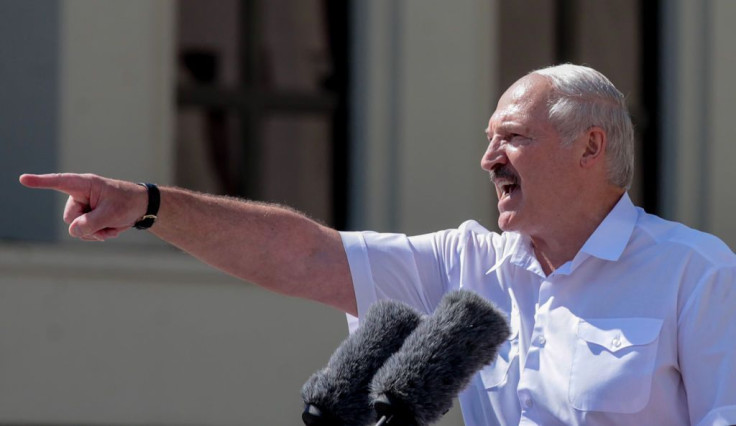The unprecedented protests that broke out after President Alexander Lukashenko won the re-election with 80 percent of the vote back on Aug. 9 are still continuing.
In a new march through Minsk on Sept. 6, tens of thousands of protestors demanded President Lukashenko to step down. The mass demonstrations have shown no signs of stopping or diminishing any time soon as people are convinced that the elections were rigged.
Lukashenko, who has been in power since 1994, has rejected calls for new elections and his government had warned the masses to not protest. But the protestors defied the warnings and waved red-and-white opposition flags during the march while shouting "go away" and "you're a rat."
Interior ministry spokeswoman Olga Chemodanova has shared that many more marches took place in major cities of Belarus and at least 100 people were arrested. And while the government hasn’t provided crowd sizes for the protests, Ales Bialiatski, head of the Viasna human rights organization, claimed that the demonstration in Minsk alone had more than 100,000 people.
According to Russia's Interfax news agency, many people were also injured when their protest was subdued by the police outside a state-run tractor factory. A local media outlet TUT.BY published video footage of women shouting "shame" at masked members of the security forces as they were dragging and pushing people to detain them.
"This sea of people cannot be stopped by military equipment, water cannons, propaganda and arrests. Most Belarusians want a peaceful change of power and we will not get tired of demanding this," said Maria Kolesnikova, a leader of the Coordination Council.
Daragh McDowell, principal analyst at the global consulting firm Verisk Maplecroft, told Al Jazeera that the economy of Belarus is “really on the brink” and it is playing a significant role in the demonstrations as the country is "rapidly running out of money."
"The IT sector has been repeatedly undermined with the internet shutdowns to disrupt the protesters. We've also seen a lot of strikes in the state-owned sector as well. So the Belarussian economy is really on the brink," McDowell explained.
"The people have lost their fear of Lukashenko, he's lost a lot of his authority. No matter how many riot police he's deployed to the streets, it just hasn't stopped people from continuing to come out,” he added.

© 2025 Latin Times. All rights reserved. Do not reproduce without permission.



